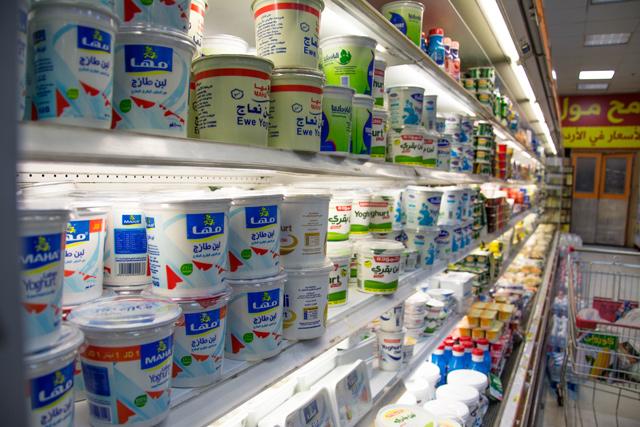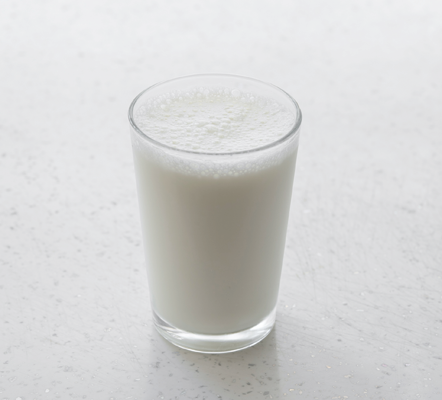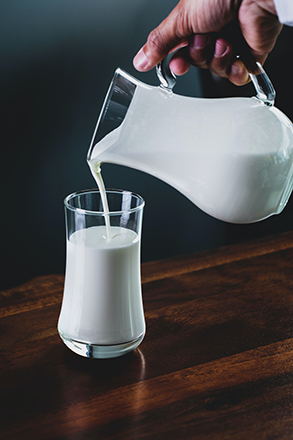You are here
Dairy price hike sparks calls for boycott
By Maram Kayed - Jul 09,2019 - Last updated at Jul 09,2019
AMMAN — The decision of some dairy companies to raise the prices of their products by 25 per cent has resulted in a call for boycott by citizens and the National Society for Consumer Protection (NSCP).
According to a joint statement made available to The Jordan Times, the dairy producers justified their decision by citing that the cost of 1 litre of milk has risen by 70 per cent from 25 piasters to 42 piasters.
The general director of the Haritna dairy brand, Zakaria Khatib, told The Jordan Times on Monday that over the past couple of years, there was an excessive amount of milk available in the market due to competition between cattle farmers, which led to a drop in value.
“In 2017, dairy producers made an agreement with the farmers that we would buy their milk to either use in our dairy-making process or market it alongside our products — all at reasonable prices that would suit everyone. That way, everyone was benefitting,” he said.
However, this year, the situation changed. According to Khatib, farmers have sold a large amount of cattle for meat, which left “only enough milk for the market’s exact demand”.
He added, “now that the supply is no longer in excess, the milk’s value has, logically, risen”.
In their statement, dairy producers also cited “high operational costs” and “burdensome taxation”, referring to the 5-8 per cent tax on dairy sales imposed as of January last year.
A dairy factory owner, who preferred to remain anonymous, said that over the past 18 months, the dairy sector has been offering products at discounted prices so as to “help cattle farmers”, but that “they did not expect the farmers’ struggle to continue that long”.
The source added: “We did not think our help would be needed for that long. We cannot offer it anymore, as now we are enduring huge losses.”
Khatib noted that more than 25 dairy farms have closed this year.
As for cattle farmers, who are backing up the dairy producers’ decision, a “25 per cent increase will mean that one kilogramme of yoghurt will be sold at JD1.25, which is still cheaper than it was in 2016, when it was JD1.40”, according to cattle farm owner Naser Sawaeed.
Citizens, however, rejected the increase as “bogus”, “exploitative” and “unnecessary” on social media, calling for a boycott of dairy products.
On Twitter, Mutaz Alrbehat said that “since they [dairy producers] have decided to raise prices for their own gains, we have decided not to buy their products. It is a game two can play”.
Sura Abbadi, in a subtweet, said “We will not die if we don’t eat dairy for a week but dairy companies will lose a lot if we don’t. Let us show them that we have a say in this too and that they are not in control of us.”
The NSCP also called for a boycott, calling the dairy producers’ decision “illegal” and “exploitative”.
NSCP Director General Mohammed Obeidat said in a statement that an internal decision by the dairy sector to raise prices violates two of the Ministry of Industry, Trade and Supply’s monopoly laws.
He urged the ministry to “immediately intervene and stop greedy traders from profiting off middle and low-income citizens”.
Obeidat also provided citizens with an alternate solution, suggesting that they buy fresh milk from farmers, priced at 35-45 piasters, and make their own home-made dairy products, which he said would cost them 50 per cent less than buying these products.
Ministry Spokesperson Yanal Barmawi said that the ministry will form a committee to look into the dairy producers’ claims and decide if there is a “legitimate” reason to raise prices, adding that the ministry “will not allow anyone to randomly raise prices without justification”.
Related Articles
AMMAN — The competitive protection of local milk is “helping revive the cattle sector”, a meeting between the Ministry of Agriculture and ca
AMMAN — The National Society of Consumer Protection (NSCP), on Wednesday, expressed its firm opposition to permitting the use of powdered mi
AMMAN — Milk yield has decreased by around 20 per cent over the last period, according to stakeholders.“Every day, between 600 to 700 tonnes















